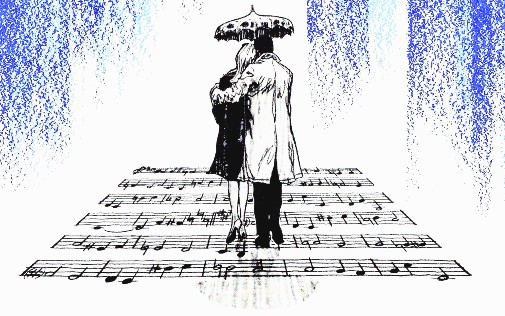
Back in the 1960s, unlike now, a film could be recognized in the Best Foreign Language Film category one year and still compete for the other Oscars the next. Such a strange fate befell Jacques Demy's The Umbrellas of Cherbourg, an intoxicating love letter to the classic Hollywood musical by one of the most inventive auteurs of the Nouvelle Vague. In 1964, the picture was a nominee for Best Foreign Language Film and would go on to conquer four other nods in 1965, the year of our next Supporting Actress Smackdown.
While it's easy to resent the Academy for not fully embracing the flick (it won nothing), the citations it received, for Demy's script and Michel Legrand's music, were fully deserved...
Moreover, these nominations highlight two of the most important elements for the film's triumph and merry subversion. The way the narrative and its music intertwine, dialoguing with each other, often defies expectations and reveals meaning which would be otherwise hidden. Just look at The Umbrellas of Cherbourg's famous ending…
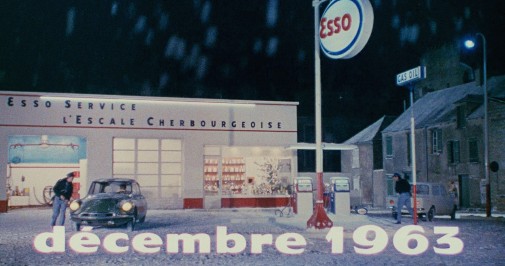
To understand the wonder of a story's conclusion, we must acknowledge what precedes it. For most of its duration, The Umbrellas of Cherbourg is a sung-through romantic melodrama about a pair of teenaged paramours, Catherine Deneuve's Genevieve and Nino Castelnuovo's Guy. She sells umbrellas at her mother's shop while he's a mechanic who's been drafted to fight in the Algerian War. He leaves for battle, she stays and discovers she's pregnant with Guy's child.
Genevieve writes her beau many letters, but his responses are sparse. Assured that she's been forgotten, the young woman accepts a marriage proposal from a wealthy Parisian jeweler. As for Guy, he's been injured in the war and finds it difficult to readjust to civilian life upon returning to France. Madeleine, a young woman who took care of Guy's departed aunt, helps the veteran rebuild his life, and the two end up falling in love. While the flower of Guy and Genevieve's young passion was undeniably beautiful, the film ends with it wilted and new relationships blooming in its place.
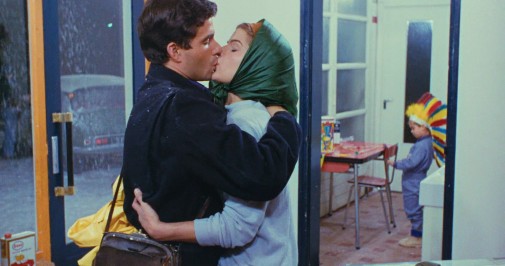
The Umbrellas of Cherbourg concludes its tale six years after it began, on a cold Christmas Eve at Guy and Madeleine's gas station. They've decorated it with tinsel and their son is running around in a feathered headdress, a colorful picture of a happy family, a postcard with sparkly snow falling outside. This may not be the happy ending the audience had envisioned for Guy at the start, but it's difficult to deny that he appears to be content with his fate.
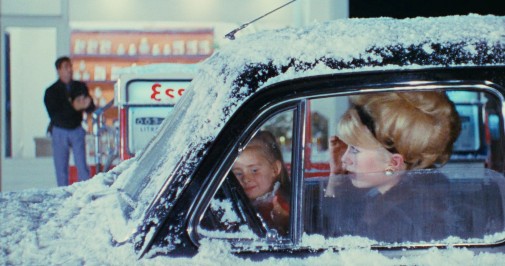
Enter Genevieve, a vision of middle-class glamour in a bouffant hairstyle and expensive car. She's mourning her mother's death and visiting Cherbourg for the first time since her wedding, stopping at the gas station on her way back home. While saddened by loss, she's resplendent alongside her daughter, the one she had with Guy. The two former lovers meet, they exchange little words and, before we know it, they depart. Maybe they'll never see each other again and that would probably be fine to them.
The film's greatest trick is how it uses the language of movie musicals to play and subvert its audience's expectations and sentimental wishes, to deny the spectator the catharsis of tragedy. Unlike Godard's cynical take on Hollywood musicals in A Woman is a Woman, Demy's singing tour de force embraces the artifice of the genre, celebrates it and even argues that the path to cinematic truth is walked on a street cobbled with fakery and spectacle.
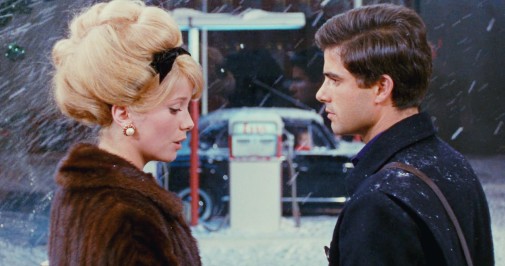
Realism and escapist magic are always holding hands in Demy's cinema, the grit of real locations dances with the fantasy of bright colors. In the ending of The Umbrellas of Cherbourg, all these dynamics are at play and they cannily comment on the ephemerous nature of lost love. That's especially evident in Legrand's musical composition, a refrain of his love theme made to be even more operatic than before. It's a requiem for a dead passion of yesterday. Still, while the audiovisual form keeps giving us the lush emotion, the characters refrain because of their maturity. They don't shed any tears, nor do they fight.
It's a bittersweet sort of maturity too, an adult reaction that recognizes the amazement of youth and its passions without succumbing to their folly. Like his characters, Demy sees the wonder of film romance and joyful immaturity, but he also points towards the reality that happens outside the silver screen. A reality where teenaged love affairs rarely end well and where that isn't an overwhelming tragedy, but a simple fact of life. Young love is all the more beautiful for how temporary it is. For it to be eternal, one must freeze it in celluloid, in fantasy and dreams. In the real world, we must all grow up.
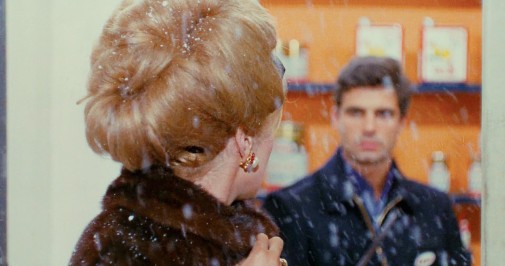
At the last moment, when we expect weeping sorrow, Demy and his beautiful masterpiece offer their audience rueful pragmatism born out of two individuals who've moved on with their lives. After all, the fact that Genevieve and Guy end the movie parting ways doesn't mean they're unhappy. The music may point towards the good tradition of Hollywood's romantic melodramas, but the characters, as written and performed, accept their resolution. They're saddened but aware of the inevitability of it all. Thanks to the game of form and text singing countermelodies to each other, so does the audience accept this bittersweet goodbye.
In The Umbrellas of Cherbourg, only two love stories survive beyond time and neither of them is that of the characters. It's the romance between Demy and cinema and our eternal love for his films.
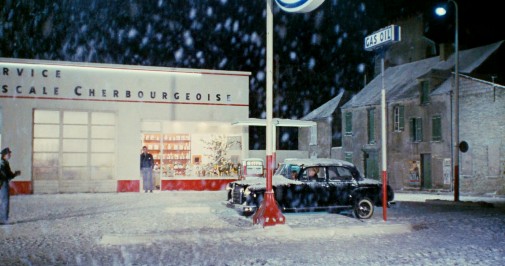
The Umbrellas of Cherbourg is available to stream on HBO Max, the Criterion Channel, and Kanopy. You can also rent it from Amazon, Google Play, Youtube, and Apple iTunes.